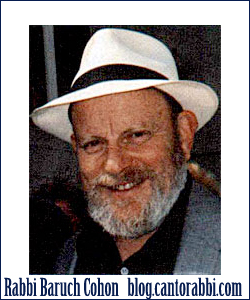Seven plagues came and went over Egypt, sanctions that no human authority could impose. Blood in the river, frogs on land, gnats filling the air, beetles swarming through houses and fields, murrain decimating the livestock, boils afflicting the people, hail terrifying man and beast. Up to here, Pharaoh sees that his magicians can duplicate some but not all of these plagues, and he persists in refusing to free the slaves. He only pretends to negotiate. If he lived today, he would be developing nuclear weapons.
Seven plagues, seven standoffs. Once more Moses faces Pharaoh and his hardened heart. This time he threatens a plague of locusts to devour every leaf of every tree and fill every house and barn, unless his people are released. Then he leaves.
Pharaohs advisers urge him to deal with Moses. How long shall this man threaten us? Let these people go and worship their G-d. Dont you know Egypt is destroyed?
Reluctantly Pharaoh calls Moses and Aaron back. Now he asks the bottom-line question. Go and worship your G-d. Just tell me mee va-mee ha-holkhim? who all is going?
Moses answers in words that ring down through the centuries: With our young and with our old we will go, with our sons and with our daughters, with our flocks and with our herds we will go, for we have a festival for G-d. Dont try to split us up. Dont figure on holding some of us hostage to make sure we return to your slave-pits. When we go free, we ALL go free.
The great Kli Yokor commentary observes that when the Torah says we have a festival for G-d khag haShem lanu we learn that while the festival and its ritual belong to the Divine, the celebration belongs to us lanu! So, though Pharaoh would be willing to send the adult men out into the desert to offer sacrifices while retaining their families in Egypt, that just wont do. The men cannot celebrate without their families. Therefore Moses says we will go twice. We men go for the service, and our families go with us for the celebration.
That thought motivates Jewish life ever since. Mitzvos, religious duties, involve the family. The wife blesses the Sabbath candles, the husband chants the Kiddush and blesses the children, and all join in the songs and blessings after the meal. A memory that always makes me smile is the thought of when my children were little and sat on both sides of the dinner table; I would prepare to bless them and one of them would say make long-arms, Daddy! so I would stretch and reach both sides.
With our young and with our old we will go.


